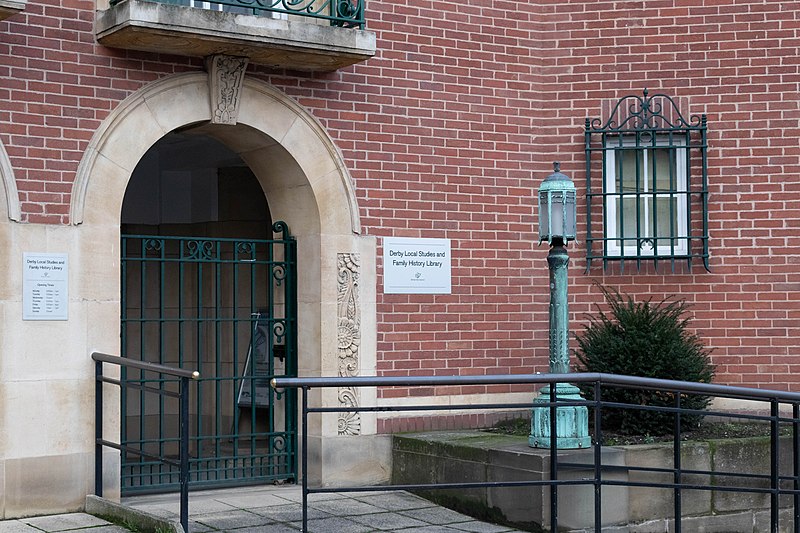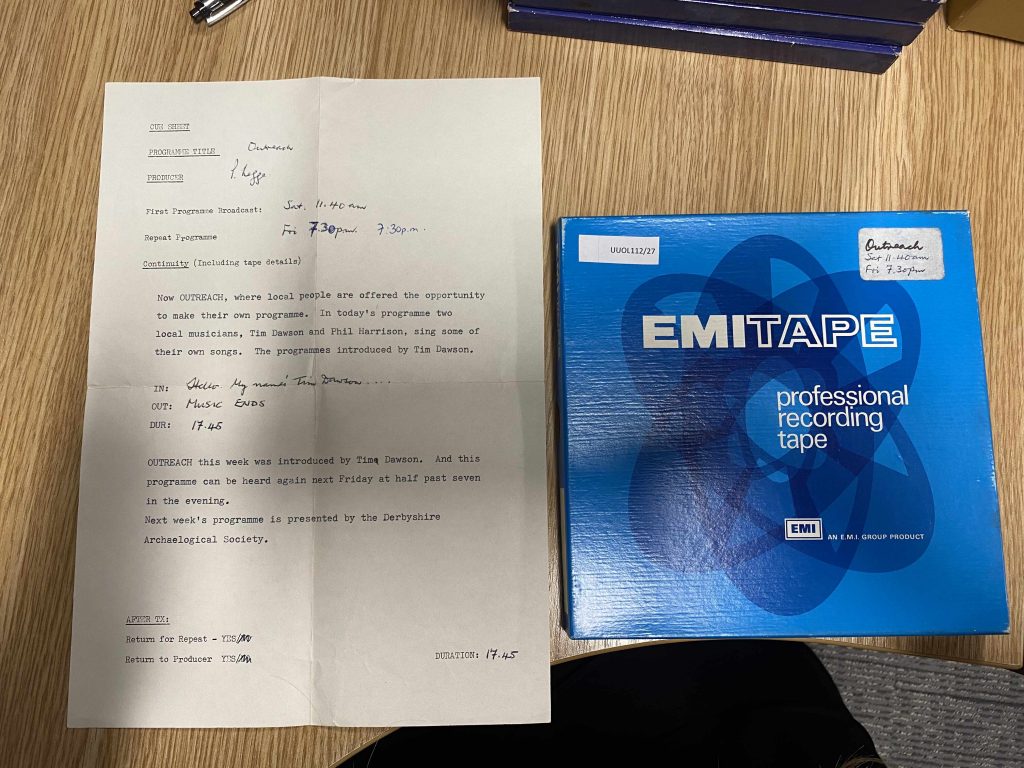Sadly, we have reached the final post in this series exploring the different collection holders the UOSH Midlands team worked with as part of the UOSH project. Following on from the previous post on Derbyshire Record Office, the last collection holder we examine is the Derby Local Studies and Family History Library. As well as summarising the various sound collections deposited at the library, this post, written by Elizabeth Gray, will also give a brief glimpse into the cataloguing experience.
The Midlands team worked with five collections from the Derby Local Studies and Family History Library:
- BBC Radio Derby Untold Stories – interviews undertaken with individuals from around the world discussing how they came to settle in Derby, recorded in 2003.
- Alvaston Oral History Project – oral history interviews conducted with local residents of Alvaston, recorded between 2003 and 2005.
- BBC Radio Derby: People and Places – programmes from the ‘People and Places’ series, exploring places of interest and local issues topics in Derby and Derbyshire. Broadcast on BBC Radio Derby during the 1970s.
- BBC Radio Derby Collection – various radio programmes broadcast on BBC Radio Derby between 1970 and 1979.
- Derby Oral Histories and Local Radio – oral history interviews undertaken with local Derbyshire residents, and recordings of various BBC Radio Derby programmes re-taped by Derby Borough Libraries.

I joined the Midlands team as a Sound Archive Assistant to help with their work during the final months of the UOSH project. As the collections from the Derby Local Studies and Family History Library were some of the last to be digitised I was heavily involved in their cataloguing. As well as ensuring all the necessary metadata is recorded, it is important that the recordings are summarised to enable them to be used and accessed by researchers and other individuals. This can be rather time consuming and so it was beneficial to have as an extra pair of hands (or rather ears) to speed the process along. A summary needs to briefly describe the content of the recording so as to be useful for listeners. Names of key speakers also need to be noted. Some of the recordings can be quite lengthy, however luckily it is not necessary to listen to the entire recording. Extracts from the beginning, middle, and end will suffice to get the information you need. As the list of collections above shows many of the recordings from the Derby Local Studies and Family History Library were BBC Radio Derby broadcasts. The programmes tended to have standard formats which meant it was relatively straightforward to locate key information within the recordings. Some of the recordings also came with cue sheets which were really useful as they gave details of both the programmes’ presenters, and the topics covered. Nevertheless, some of the programmes did take longer to summarise than others. A particular bane of mine were the ‘In Retrospect’ programmes, which reviewed a week’s period of Radio Derby broadcasts. These programmes had multiple reporters and topics which meant it could take a while to write a good summary. I did find out lots of interesting things about Derby and Derbyshire though – who knew there were wallabies in the Peak District!

For more information about the Derby Local Studies and Family History Library visit their website. You can also use the British Library SAMI catalogue to explore the sound collections further.


 Subscribe to Colin Hyde's posts
Subscribe to Colin Hyde's posts
Recent Comments